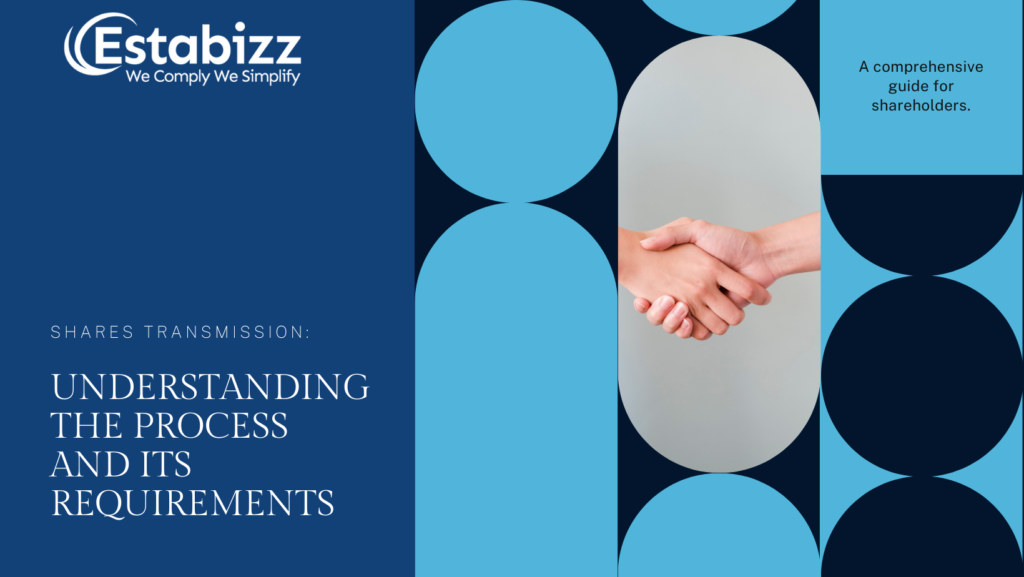Navigating Claims in Investor Education & Protection Fund (IEPF)
At Estabizz Fintech, we specialize in assisting you to reclaim shares from Government’s IEPF. When dividends remain unclaimed for a continuous span of 7 years, the related dividend, as well as the corresponding shares, are transferred to IEPF under the supervision of the Ministry of Corporate Affairs, Govt of India.

Retrieving your entitlement from IEPF can be a complex process that involves engaging with the Nodal officer of the concerning company for verification and ultimately approaching IEPF to claim your shares. This procedure must be repeated distinctly for holdings across multiple companies. Filing the claim goes digital, but the physical documentation required also demands further scrutiny at various levels.
The Process of Duplicate Issuance of Shares Explained
If you lose or damage your original share certificates or they no longer serve their purpose due to other reasons, the Duplicate Issuance of Shares can help you secure replacements.
The company involved needs to issue the duplicate shares certificate within a time span of 36 working days in compliance with the regulations set by the Company Law. The company will accept objections within the first 15 days once the newspaper advertisement about the lost shares’ is published. If all provided documents are verifiable and accurate, the company issues the duplicate shares within the subsequent 21 days.

In case physical shares are lost due to theft or other reasons, it is an absolute mandate to file a general diary or lodge a complaint at the nearby police station about the lost shares.
The series of steps include:
- Providing an advertisement about the lost shares in a newspaper,
- Submitting KYC documents including PAN card, Aadhaar Card, Bank Account Details, Demat Account Details, Nomination details, and Passport
- Completing the entire process through online submissions or filing
Transmission of Shares: What It Entails
Transmission of Shares is a process wherein the shares of a deceased shareholder are transferred to their rightful heirs or assignees. This process transpires when a shareholder passes away and the shares owned by them necessitate a transfer to their inheritors. The Legal Heir Certificate, Succession Certificate, Probate of Will, and Letter of Administration are few of the legal documents required for the transmission of shares.
The process may vary whether the shares are physical or dematerialized and depending on the value of the shares.

How to handle the issuance of duplicate shares
Additionally, the Probate of Will and Succession Certificate are not identical. Probate is granted when a deceased individual leaves a Will and a Succession Certificate is issued when the person does not leave a Will.
Retrieving certificates such as the Legal Heir Certificate and Succession Certificate require completion of specific procedures to facilitate the smooth transition of the shares.
Definition of Transmission of Shares
Transmission of shares refers to the procedure of transferring the ownership of shares from the deceased shareholder to their legal heirs or nominees. When a shareholder passes away, their shares need to be transferred to their successors, thereby initiating the process of Transmission of Shares.
Legal Documentation for Transmission of Shares
The legal documents necessary for the transmission of shares include:
- Legal Heir Certificate – From the local SDM/Tehsil Office
- Succession Certificate – From the Court
- Probate of Will – From the court
- Letter of Administration – From the court
The process slightly varies between physical shares and DEMAT depending on the value they hold, and hence, different certificates are required.

Probate of Will Vs Succession Certificate
It’s important to distinguish between the Probate of Will and Succession Certificate. A ‘Probate’ is granted when the deceased leaves a will, while a ‘Succession Certificate’ is necessary when the deceased does not leave a will. While all deceased’s assets can be claimed in a Succession Certificate, the assets transferable in Probate are only those explicitly mentioned in the will.
Steps to Obtain Legal Heir and Succession Certificates
The Legal Heir Certificate is issued by the local Revenue Department, SDM office in metro cities, or the Tehsil office in non-metro regions. Alternatively known as the Surviving Member Certificate, it is necessary for the process of share transmission.
To obtain a Succession Certificate, a petition needs to be filed before the local Civil Court where the deceased resided. This certificate is necessary when the deceased hasn’t left a will. After the court verifies the applicant’s claim through a series of summonses, the Succession Certificate is granted.
Dealing with Duplicate Issuance of Shares
What Indicates a Need for Duplicate Shares?
A shareholder may require a Duplicate Issuance of Shares when original share certificates are lost, stolen, damaged, or are otherwise unviable. At such instances, the company allows shareholders to request replacements.
The Timeline for Issuance of Duplicate Shares
Legally, a company must issue the duplicate shares certificate within 36 working days in accordance with Company Law. During the first 15 days following the public notice for lost shares, the company is open to any objections. If the relevant documentation is valid and in order, the company then proceeds to issue a duplicate issue of shares within the following 21 days.
When Is a Police Complaint Necessary?
In circumstances where physical shares have been misplaced, stolen, or have vanished due to unheard reasons, it becomes mandatory to file a police complaint at the nearest local station. This is a crucial requirement for the initiation of the duplicate issuance process.
Incorporating KYC in the Duplicate Issuance Process
Another important consideration during the duplicate issuance of shares involves KYC documents. These include:
- PAN Card
- Aadhaar Card
- Bank Account Details
- Demat Account Details
- Nomination details
- Passport (Necessary for NRI)
In the case of NRIs, the KYC documents need to be either notarized from their place of residence or attested by the Indian Embassy in the residing country.

Strategies for Handling Lost Shares
When share certificates are lost, the requisiter needs to issue an advertisement in the Lost & Found section of the newspaper. As per the recent SEBI regulations, this step is necessary only when the value of the lost shares exceeds ₹5 lakhs. Additionally, in cases of IEPF claims, the advertisement should be published in both English and the local/regional language, corresponding to the registered office of the Company whose shares were lost.
Transition from Physical to Digital Shares
Interestingly enough, in earlier times, a company would issue duplicate shares in physical form. However, following the latest SEBI guidelines, companies must issue duplicate shares as a Letter of Confirmation (LOC). After receiving the LOC, the shareholder needs to deposit it with their Depository Participant (DP) for the dematerialization of shares within 120 days from the issuing date of the LOC.
Differentiating Between Probate of Will and Succession Certificate
Contrary to common misconceptions, Probate of Will and Succession Certificate are not identical. A Probate is granted only when a deceased person leaves behind a Will. On the other hand, a Succession Certificate is issued when the deceased person does not leave a will. A beneficiary as per the Probate could be an individual or any other entity, whereas, as per the Succession Certificate, a beneficiary can only be a Legal Heir as per the Indian Succession Act, 1925.
Getting a Legal Heir Certificate or a Succession Certificate
In order to get a Legal Heir Certificate, a requisition needs to be raised at the Revenue Department of the district where the shareholder passed away. If it is a metropolitan city, it is issued by the SDM office, and in case of non-metropolitan cities, it is issued by the Tehsil office. In specific regions, the Legal Heir Certificate is also known as a Surviving Member Certificate.
On the other hand, to get a Succession certificate, a petition needs to be filed before the appropriate Civil Court where the deceased person was last residing. This is necessary only when the deceased person does not leave behind a will. The court grants the Succession Certificate once the applicant’s claim is verified to be genuine.
Disclaimer:
Estabizz Fintech compiled the material in this article using the most recent Acts, Rules, Circulars, Notifications, Provisions, Press Releases, and material applicable at the time. They ensured the completeness and correctness of the material through due diligence. When using this material, users must consult the relevant, applicable legislation. The given data may change without prior notice and does not constitute professional advice. Estabizz Fintech disclaims all liability for any results from the use of this material.






